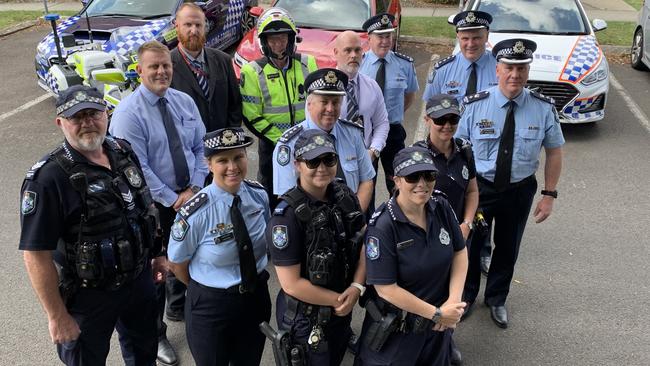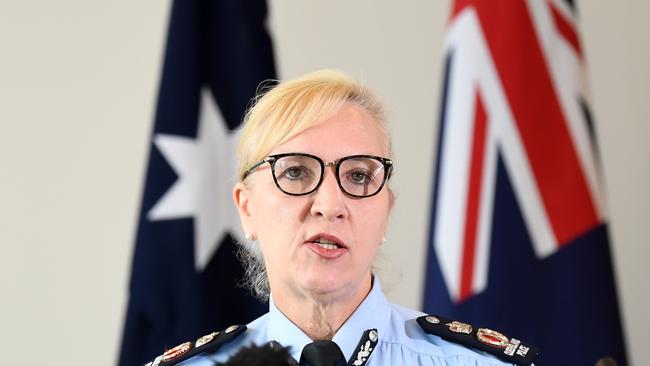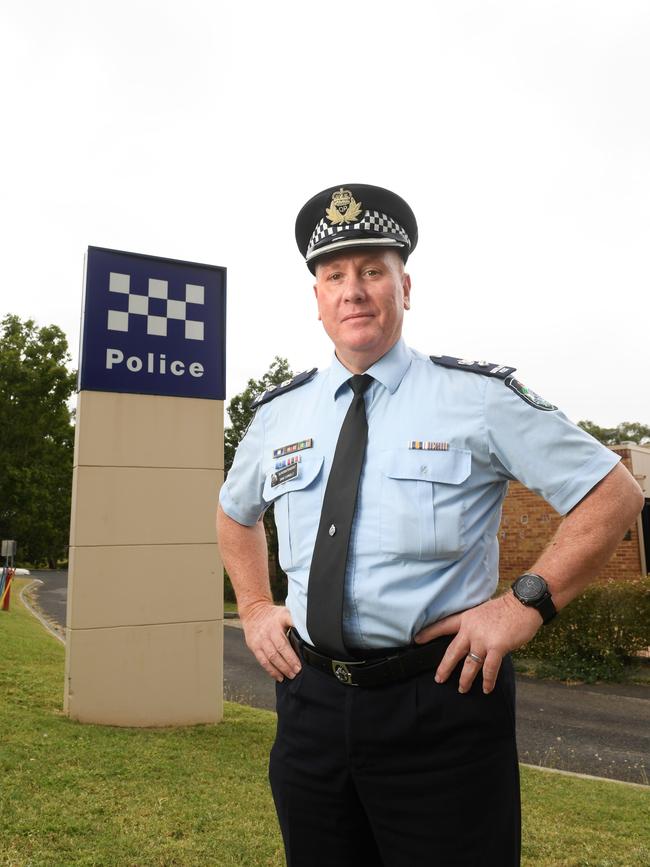Ipswich police follow state’s lead in priority changes
In the coming months Ipswich police will change the way they respond to our calls for service

Ipswich
Don't miss out on the headlines from Ipswich. Followed categories will be added to My News.
ENSURING a more effective response to crime in the state’s fastest growing region is all a matter of getting your priorities right.
Ipswich District Superintendent David Cuskelly said the response to the recent announcement of a realignment of the way police respond to calls for service had been received eagerly within his ranks.
The region’s top cop says the new system will free up frontline officers for preventive and disruptive operations, instead of being caught up in non-urgent or administrative work.
“This is all driven by demand management,” Superintendent Cuskelly said.
“There is a lot of demand on the police as we know, which is why Commissioner Katarina Carroll initiated a review when she first came in.”
The 2019 review found that statewide, demand for police response had jumped 48 per cent in the previous five years, while clearance rates were down 7 per cent over the same period.
Perhaps even more alarming, 42 per cent of calls for service failed to result in a police resource being deployed.

Police were not able to provide localised figures for the Ipswich district, but the review indicated a big problem for the service across the state.
The new system has been developed under the acronym of SOLVE (Severity, Opportunity, Likelihood, Vulnerability, Expectation), which first responders will use to assess the urgency of each call for service.
In practical terms, the changes mean general duties police may not be sent to jobs like overnight break-ins – where there is no immediate threat to safety – with scenes of crime officers to attend.
Police will continue to encourage people to report non-urgent crime using the phone or online reporting services.
This frees up uniform police for more urgent jobs, including domestic violence or assaults or robberies in progress.

The system was introduced on February 8 and is already being practised in the Moreton Region.
An implementation team arrives in Ipswich district in mid-June in anticipation of a mid-August start date for police here.
Supt Cuskelly said the changes would not result in police reducing their activity, rather they would better focus it in the areas that matter most.
He said the way police had been handling some jobs was “clunky”, with multiple ‘touch points’ for some jobs taking up resources unnecessarily.
“Urgent jobs will continue to be attended to as soon as we can,” he said.
“In terms of domestic violence, where we already invest a lot of resources, this will only enhance our service delivery.
“We need this. We need to realise these efficiencies as an organisation.”
Assistant Commissioner Cameron Harsley said the changes aimed to address the issue of multiple handling of incidents which was identified in the review.
“We recognised that in many instances we had officers from different teams attending one scene, which in some circumstances made it challenging to allocate our resources where they were needed most,” he said.



